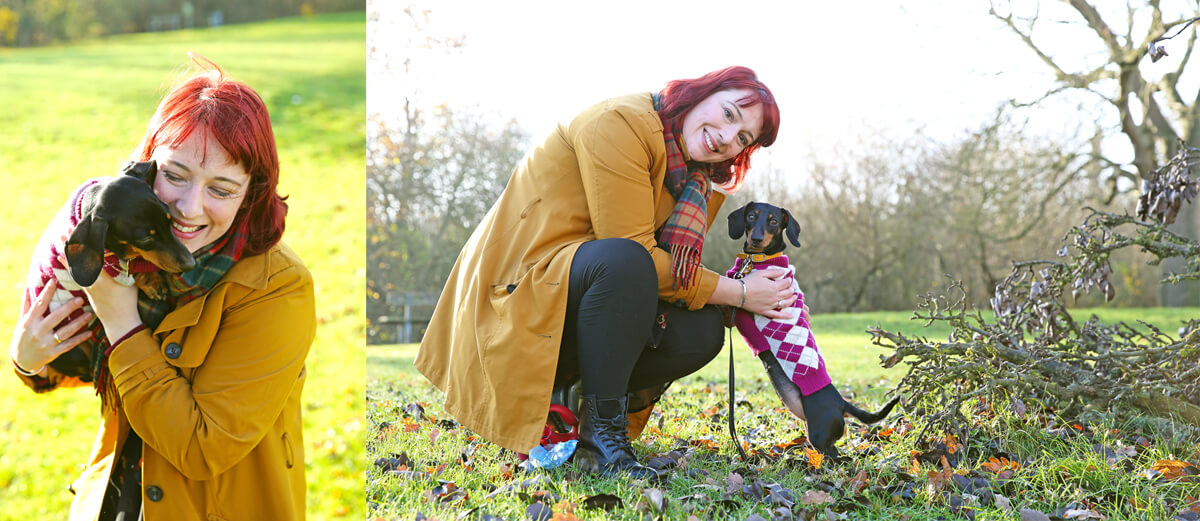February may be the time of celebrating love between couples but, as all pet owners know, the bond between humans and animals is just as special. We've rounded up research and expert advice to gain insight into what we can learn from our bond with dogs, and the positive impact it can have on our other relationships.
When did the bond begin?
Your dog's wagging tail and unconditional love are two things that make your heart melt. But did you know that your own affection for your pet could possibly go even deeper? According to research, it could be in your genes.
'The idea of having animals in our homes is ancient,' says Dr John Bradshaw, author of The Animals Among Us and research fellow at Bristol University Veterinary School. He explains that pet keeping dates back 50,000 years, and research shows that hunter-gatherers across the world found animals while hunting and took them back to live in their settlements. 'We seem to have evolved to want to look after animals in similar ways to looking after human babies,' he explains.
Dr Bradshaw believes there's a genetic basis to this, and that some of us are genetically predisposed to liking animals. In fact, he thinks that our pets may have become domesticated because of this affection: 'Domestication wouldn't have gotten very far if we had no affection towards animals,' he says. 'A love for dogs meant that hunter-gatherers kept our pets' ancestors with them all the time, ensuring that each generation of dogs became more domesticated.'
The evolution of keeping pets
Historically, pet keeping served an important function: animals had to be useful. 'They were essential for our ancestor's survival,' says Dr Bradshaw. Dogs helped with hunting and protecting settlements; guarding people against the many dangers they encountered at the time.
Now, of course, dogs have become our companions who we treat as one of the family. Dr Bradshaw believes that's why many of us now use human names for our pets - it's an unconscious reflection of pets evolving from working animals to family members. And the evidence backs this up: according to Rover.com, the most popular dog names in 2017 included Max, Bella and Charlie, while in the early 1900s popular dog names were Spot, Rags, Punch and Trixie.
Pets and our relationships
Today, our bond with our dogs is as strong as ever, and there's evidence to suggest it can have an impact on our human relationships, too. 'Pets have the ability to help strengthen relationships,' says Michael Hamilton, a veterinary orthopaedic and neurosurgeon. 'They help us to be more patient, caring and loving towards one another. The unconditional love you receive from a dog is extremely rewarding. It can influence us to behave in the same uplifting way with our partners.'
In fact, research by the University of Buffalo found that couples with pets had closer relationships and responded better to stress than couples who didn't, while a 2017 survey by Elite Singles found that 57% of Brits found singletons with pets more attractive than those without. In fact, 63% said they were more attracted to dog owners, in particular.
'There's a big trustworthiness factor at play,' says Dr Bradshaw. 'And your bond with a dog can really affect your human relationships, as people appear to trust dog owners more. One survey found that just adding "with a dog" to one man's dating profile was enough to get increased interest from prospective partners.'
True story: how one owner's bond with her dog helped her find new friendships after heartbreak
I adopted my Dachshund, Mia, at 8 weeks old," Marie Hayward says. "I fell in love with her immediately, but it was bittersweet because I'd wanted to adopt her with my partner.

Not only had Marie's long-term relationship ended, but she'd also just been made redundant. 'I was heartbroken, and it was Mia who helped me through it all,' she recalls.
'I just wanted to stay indoors and avoid socialising all together, but for Mia's sake I made an effort to get out and take her for walks.' Due to her small size, Mia sometimes travels in Marie's handbag - bringing lots of positive attention their way when they're out together.
'I often get stopped by people wanting to stroke her and talk to me,' says Marie. 'It ranges from mums with kids and the elderly to people with disabilities, and even men you'd never otherwise expect to like a tiny dog.
'Mia makes me so happy; she got me talking to people again and back into a routine,' Marie says. 'She helped me rediscover who I am. And, because I've seen the positive affect Mia has on other people, it's inspired me to train her as a therapy dog so she can bring joy to other peoples' lives, too.
'The bond between us is unlike anything I've ever experienced before,' she adds. 'Mia is such a joy to be around. Even when I'm feeling down, she still acts like I'm the best, and when we're out together it feels like we're a team. I aspire to be the person my dog thinks I am.'
